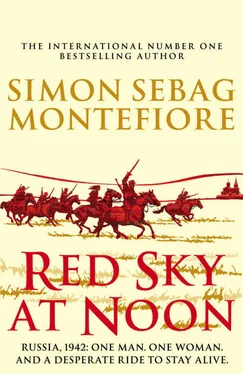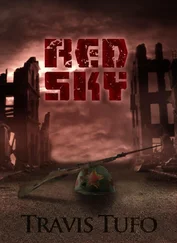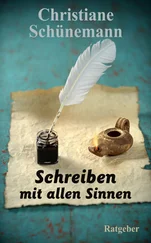He was about to ask who she was and what the hell she was doing here when Montefalcone, patting the sweat from his face and his upper lip, said, ‘Sir, let’s get out of here.’
For once, Malamore agreed with him. ‘Thanks for your help,’ he said to Kaminsky. ‘Will you let me know if they come this way?’
‘He’s a Jew,’ said the woman with the stout legs.
‘Who is?’ asked Malamore.
‘Golden, the Soviet partisan who’s taken your nurse,’ said the woman. ‘A Jew has taken your nurse.’
Fabiana was swaying in the saddle. It was early evening, and the sky was a turquoise blue strewn with crimson-lit clouds. As the sun set, they looked at each other, eyes like sleepwalkers, surprised to be alive. The horses were labouring; Socks had been unhappy for a while, fretting, ears back. She tripped in a marmot hole and lost her footing, and Benya had got down to check her fetlock, but they were lucky, nothing broken. Yet he knew if they went on much further, they would destroy the horses.
‘We must stop. Here.’ They’d arrived at a farmer’s cottage that seemed abandoned.
Fabiana dismounted first, stiffly, staggering a little as she hit the ground. ‘I’ll water the horses if you check the house.’
Papasha levelled, Benya walked through the cottage. It was empty. There was running water from a well in the copse, and Fabiana tried to lead Silver Socks but the horse stiffened and wouldn’t go with her.
‘Leave her, I’ll take her,’ Benya said. Together they poured water over their horses who snorted and threw back their heads. Silver Socks stamped her hooves impatiently.
‘Eh! Damned horse,’ muttered Benya. ‘Don’t I look after you all right? Don’t I spoil you?’
Fabiana got the food out of the saddlebags and the two of them sat beside the horses and silently ate the Italian rations of smoked meat, black bread, army biscuit, dried cherries and sunflower seeds. There were two beehives by the well and they scraped out the honey with pieces of wood to get to the wads of honeycomb.
‘Ouch!’ Benya winced as he was stung but they scooped out the honey, excited at this amazing find, he eating with his knife and she with her hands like a little bear.
Fabiana stood, rinsed her hands and drank water straight from the bucket, her brown throat straining as she gulped, and then she poured the rest of the bucket over her head. She glanced at Benya and went to the well, bringing out a full bucket for him. As he drank, he wondered whether he could really trust her: she was an Italian on the Fascist side, an enemy, and he was a Russian Jew. Yet she had placed herself in peril for him, and if he sent her back, she could well be tortured and shot. It was true she had served as a human shield during his escape – some Italians were still romantics – but now they were hunting him because she was with him. He was intensely aware that having her by his side would probably hinder his own chances of escaping to safety. And then there was his own side: if any Soviet soldiers saw him with a Fascist woman, he would be the one before the firing squad as a traitor.
He looked at her. Her dark wet hair was slicked back, and he knew she knew he was sizing her up. The way she had ridden out after him, bringing the guns – that took reckless courage, he thought. She was an astonishing character, that was for sure. He exhaled, making up his mind. They should stay together for now. If they survived the night and the next day, they could go their separate ways then. She could tell Malamore that he had forced her, as a hostage perhaps, and recount his cruelties and his violence. This might even squeeze a few tears out of that old crocodile.
‘You’re worrying,’ she said, looking at him.
‘Is it so obvious?’
‘I know you. How’s your shoulder?’
‘Sore.’
‘It will be. I’ll re-dress it. Check it hasn’t opened up again.’ A pause. ‘You’re thinking I should go back to Malamore, aren’t you?’
He could see her suntanned skin. Every pore was engrained with dust yet shining from the water. Her bravery briefly overwhelmed him: she had lost her husband, and now had to cope with this. He thought of her, the massacred Jews in the woods, the child on Kapto’s knee, his own hopelessness – and he wanted to cry.
‘Thank you for bringing the guns and food. For everything.’ He yawned suddenly, shaking himself to stay awake. ‘I’m exhausted.’
‘Me too.’ She peered at him. ‘You’re very pale.’
‘We must sleep a bit. We’ll be safer outside, I think. Let’s move the horses.’
The cottage was in a clump of poplars which in turn was guarded by a gilded escort of sunflowers that stood as high as a man. They hobbled the horses just on the edge of the wood so they could eat the grass but not stray, and they spread their horse blankets and lay down in the shade, almost surrounded by the sunflowers, and pulled their boots off. He was so stiff from the saddle that he wondered if he would be able to ride again later. His lower back, thighs and buttocks were in agony, as if the saddle had grated his bones.
Keeping his pistol right beside him, a grenade on his belt, the Papasha within reach, he closed his eyes.
Fabiana Bacigalupe, he said to himself, a name out of a Benya Golden novel.
He felt her lie down, then move over, now almost against him. He sensed her breath on his neck. She was asleep.
It was evening in the special family mansion, and Sergo Beria had just got home from his office, where he worked in foreign intelligence while finishing his scientific studies. Only a highly educated person could work in foreign intelligence and Stalin himself had suggested this job for Sergo, who was one of his favourite youngsters.
‘Lavrenti,’ Stalin had said to his father, ‘let me read his reports. I think I’ll be impressed…’
Sergo spoke perfect English and had read the classics of French and English literature. In the office today he had read the American and British newspapers, analysing the statements of President Roosevelt and Prime Minister Churchill. He was also allowed to see the transcripts of the devices that listened to the Western diplomats in Moscow. As he came into the house, he heard the skid of brakes outside. A Packard limousine followed by a Willys jeep full of guards had pulled in and officers with sub-machine guns stood in the courtyard. His father was home.
Balding and wearing rimless spectacles, Lavrenti Beria, overweight and ashen with exhaustion, yet seethingly alert, dressed in a flowery Georgian blouse and baggy linen trousers, burst into the kitchen and hugged his wife Nino, and then Sergo.
‘Darling Lavrenti,’ cried Nino. ‘You look terrible! You must sleep. How are you?’
‘I haven’t slept for twenty-four hours,’ he said. ‘But I’m not the only one. He hasn’t slept for seventeen hours and he’s a lot older than me, twenty years older.’ They all knew who ‘ He ’ was. Dictatorship had the power to turn day into night and night into day. Stalin was nocturnal and worked at night so the entire government did too.
‘What’s the news?’ asked Nino.
‘Nothing good. We’ve made idiotic mistakes and now we’re paying the price.’ Beria was the only man in Russia who could say such a thing and he revelled in his ability to do so. No one was bugging his house; he did the bugging. He radiated the energy of a man at the height of his powers during the greatest crisis of his nation. ‘We’re surrounded by too many cowards, too many fools.’ He stopped and looked at his little family: ‘Darling! What a joy to see your face. Kiss me again.’ Then he turned to Sergo: ‘How’s my clever son? How did you get so handsome with an ugly father like me? I’m so proud of my Sergo!’ He took Sergo in his arms and kissed him three times on his cheeks. ‘Come and talk to me while I rest…’
Читать дальше












